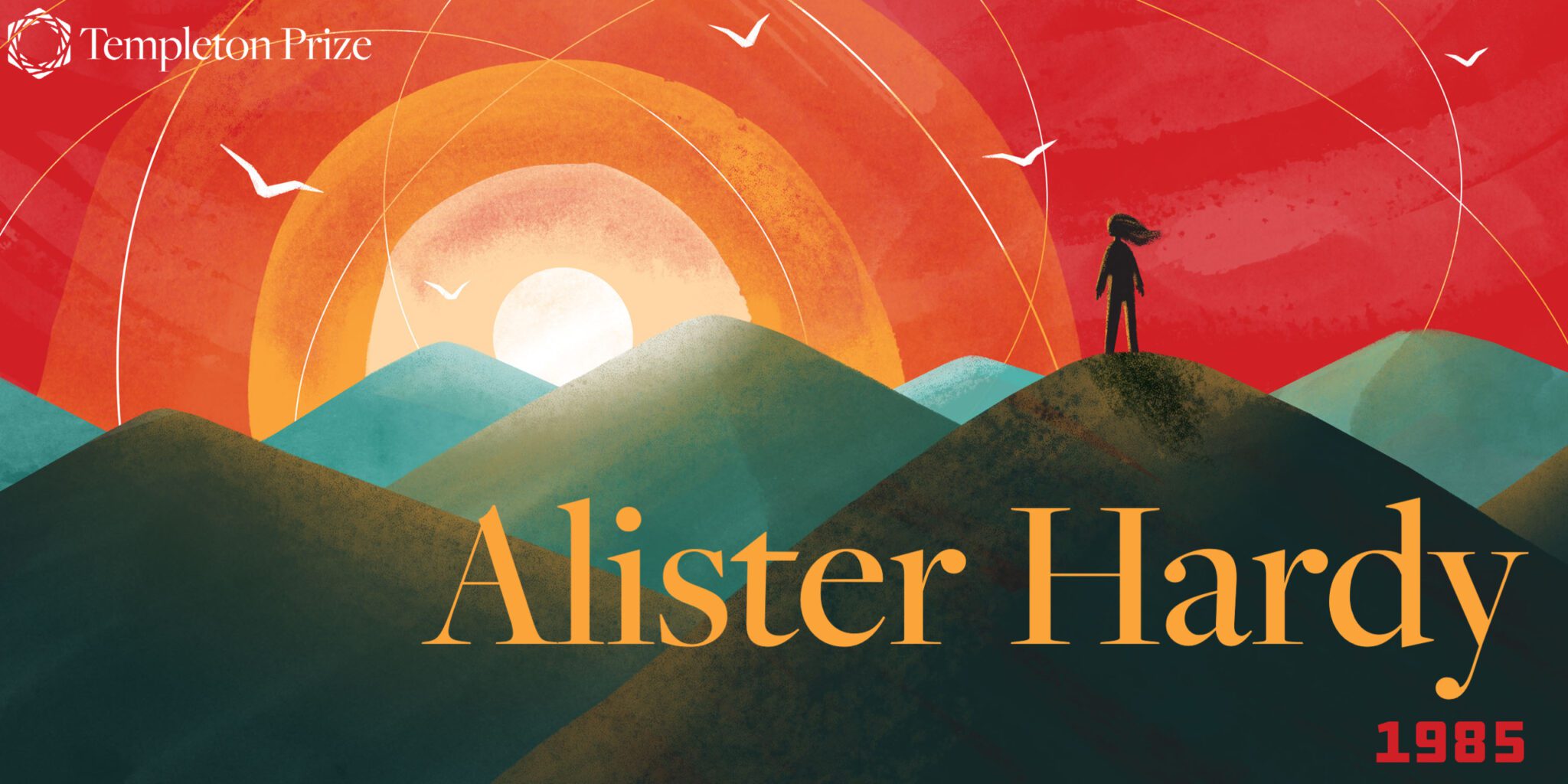In 1973, the first Templeton Prize was given to Mother Teresa. In 2023, we celebrate the 50th anniversary of this award. Over the next 52 weeks, we will highlight each of the 52 laureates (including years with dual winners) and reflect on their impact on the world. From humanitarians and saints to philosophers, theoretical physicists, and one king, the Templeton Prize has honored extraordinary people. Together, they have pushed the boundaries of our understanding of the deepest questions of the universe and humankind’s place and purpose within it, making this (we humbly think) the world’s most interesting prize.
Sir Alister Hardy was born on February 10, 1896, in Nottingham, England. He began his career as a marine biologist but went on to gain prominence for original empirical studies that used scientific methodology to investigate religious experience.
At a young age, Hardy had a great interest in nature which led him to enroll at the University of Oxford at the age of 15 in 1911. His time at Oxford would be short-lived as he was assigned to the northern cyclist battalion as a camouflage officer at the start of World War I. Hardy was able to return to Oxford in 1919 to finish his studies. He earned his degree in zoology and graduated in 1921. Due to his academic work and the completion of his degree, Hardy was awarded the Christopher Welsh scholarship which allowed him to take a trip to Italy where he became fascinated by marine life.
Between 1924 and 1963 Hardy served as a zoologist, a professor of Zoology, a regius professorship, and a Linacre professor across different universities. He always had a fascination with God, religion, and its relationship to human evolution and survival. After retiring from Oxford, he wrote The Living Stream and The Divine Flame, and in 1969 he founded the Religious Experience Research Centre at Oxford which focuses on the study of people’s accounts of religious or spiritual experiences.
Hardy was awarded the Templeton Prize in 1985 for his work and efforts to close the gap between science and religion. The ceremony was held at London’s Central Hall Westminster and was presided over by HRH Prince Philip, Duke of Edinburgh. Mr. John M. Templeton and The Duke of Norfolk, K.G. gave speeches about what Hardy’s work meant to the Prize.
-

Belinda Farley accepting the award on behalf of Sir Alister Hardy from HRH Prince Philip
“Progress seems to be the creative process chosen by God and it is our duty as children of God to work for progress including progress in the understanding of God and the love of God. It may be that the only great enterprise worthy of our best efforts is the continuing discovery of the underlying reality which is God. More and more intellectuals and leaders in all the great religions and churches are beginning to visualise the blessings which might flow from research and progress in spirituality.
Sir Alister Hardy has been a pioneer in applying scientific methods to research in human spirituality. Already the great pioneers such as Sir Alister are inspiring thousands of natural scientists and theologians to undertake research for the purpose of progress in those things which are infinite and eternal.
The main purpose of The Templeton Foundation Programme of Prizes for Progress in Religion is to make known the great originators and pioneers in every religion so that the people of every nation may be uplifted and inspired. Mr. Chairman, it is for that reason that the Templeton Foundation honours Sir Alister today.”
— John M. Templeton, 1985. Read the full speech
“All around us there is technological advance following on the years of patient research. It is therefore imperative that spiritual progress gains momentum to enable us to achieve an even better relationship with God than that which we have today.
If the work of the Religious Experience Research Unit founded by Sir Alister can help us or even future generations to attain that relationship it will have achieved much.
In 1951 Sir Alister delivered the Essex Hall Lecture here in London under the title of Science and the Quest for God. I happen to know this is of particular interest to Mr. John Templeton who founded this prize. Today in sterling terms it is the most valuable annual prize in the world, and the reason is that Mr. Templeton is a firm believer that progress in religion is more important for mankind, even more than other forms of progress combined. It is worthy of note that theologians like Prof. Thomas F. Torrance of Edinburgh have devoted much of their time to the new theological science. That scientists like the astrophysicist Prof. John Polkingthorne of Cambridge and Dr. Arthur Peacock the molecular- biologist from Clare College, Cambridge, have both become clergymen in the Church of England. It is obvious that much is happening not only in this country but also in the United States and in Australia to bridge the gap that was permitted to exist between theology and science. We here today are witnesses to that.”
— The Duke of Norfolk, K.G., 1985. Read the full speech
Still Curious?
Learn more about 1985 Templeton Prize laureate, Sir Alister Hardy here.

